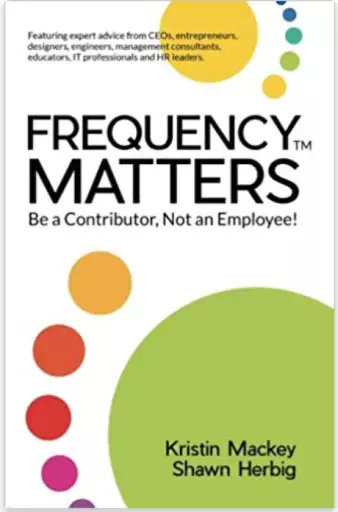 “…in my dataset of high-potential startups, only 16.1% were solo-founded…More than one-third of the startups had two founders and one-quarter had three,” writes Noam Wasserman (page 73) in his popular book, “The Founder’s Dilemmas: Anticipating and avoiding the pitfalls that can sink a startup.”
“…in my dataset of high-potential startups, only 16.1% were solo-founded…More than one-third of the startups had two founders and one-quarter had three,” writes Noam Wasserman (page 73) in his popular book, “The Founder’s Dilemmas: Anticipating and avoiding the pitfalls that can sink a startup.”
Noam’s research confirms my experience. I see many more startups with co-founders than with a solo founder. This was my personal experience, too.
Mark Goh, Co-founder & CEO of ChargeSpot, met his co-founder, Pat Laureano, when they were in the first grade. “This would have been impossible without my co-founder, Pat,” he said during a recent episode of the “From Founder To CEO” podcast. In fact, another guest on the show mentioned he knew his co-founder since kindergarten.
This caught my attention. I don’t know the exact number of startups with co-founders who met in grade school. But, I suspect some of their success as a company can be attributed to their close relationship and their caring for each other as people, first. They have also figured out each other’s communication patterns, expectations, stress triggers, interests, strengths, etc.
This comfortable relationship is very helpful to the success of the company. There are plenty of examples of new co-founders with conflict that has harmed or inhibited the growth of a startup.
Big risk to startups
In fact, Harjeet Taggar, former Y Combinator partner, once wrote, “The relationship between co-founders is usually the single biggest risk to a startup in the earliest stages, it’s certainly the most common reason for failure we see at YC.”
Clearly there are lots of reasons why co-founder relationships sour. In my experience, one of the more common ones is just avoidance. Co-founders are so busy working, that it’s easy to avoid addressing lingering issues between or amongst each other.
So, what do you do if your relationship with your co-founder is relatively new and you don’t have the benefit of a decades long relationship? What if as CEO there is something that your co-founder does that is bugging you so much that it is affecting the company? What if you just don’t know what to do?
For the answer to these questions, I invite you to check out the ground breaking work of Thomas Gordan, PhD. Dr. Gordon was a pioneer in teaching communication skills and conflict resolution methods to many around the world.
His “I-messages,” are just as relevant today, as it was when he first introduced the idea way back in 1970.
What can you do?
With a nod to Dr. Gordan, I have found great success in the magic of one, powerful question that a Co-founding CEO can ask her co-founder. It is so impactful that most of the startup teams I have worked with have reported great results with less drama than they had initially feared.
What is the “I-message” question that I recommend?
“When you do x, it makes me feel y. Is that what you intended?”
Yes, it’s that simple.
Dr. Gordan might put it this way: “When you do x, I feel y. Is that what you intended?” Either way, you get the point.
While Dr. Gordon’s work is much more robust in conflict resolution and well worth your time, I have found this one statement combined with a question is a great way to have “healthy conflict.”
I don’t believe in avoiding conflict. One of your roles as CEO is to encourage healthy conflict and this magical “I-message” question is a great start.
Why?
First, you start with a clear and unambiguous statement of your observation. Clarity is key. Then you follow it up with your feelings. It is hard to argue with someone’s feelings. Finally, you don’t corner your co-founder. You assume the best of them. You give them a chance to genuinely say, “No, that is not what I intended. In fact, I am so sorry I came across that way. I had no idea.”
And a new beginning dawns. In fact, not to be overly dramatic, but I have seen entire businesses pivot on this single start. This new beginning. This renewal of a relationship in a kind, compassionate, sharing way.
It takes courage
Someone has to start it. It takes courage. It may be unfair. But, in my opinion it’s the CEO’s responsibility to get things started.
David Mandell, Co-founder and CEO of PivotDesk, was a recent guest on the “From Founder To CEO” podcast. He knows first hand this heart breaking responsibility. He tells in detail how he mustered the courage to confront his co-founder about his ability to continue in his role at PivotDesk. He also wrote about it in a recent blog entitled, “The most difficult decision I’ve made as PivotDesk CEO.
Conquering co-founder conflict doesn’t mean getting rid of it. It means working through it in an effective and expeditious manner. I hope the “I-message” question I shared helps you with this.
What do you do to conquer co-founder conflict?
Share your thoughts in the comments so our growing community can learn from you.


